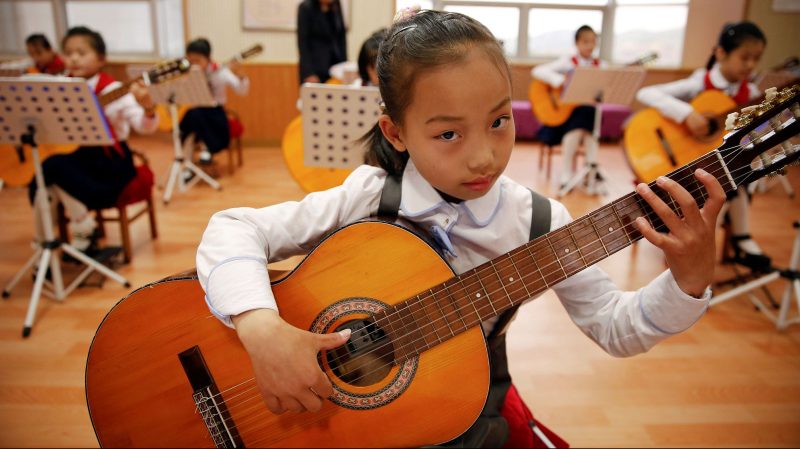The case for teaching every kid to play a musical instrument – for free
“Without music, life would be a blank to me,” a character famously declares in Jane Austen’s novel Emma. A similar sentiment seems to be shared by the UK’s most talented musicians, who launched a campaign the weekend -May 12- calling for universal access to free musical education for primary school kids in Britain.
A group of 20 musicians, all past winners of the BBC’s prestigious Young Musician competition, penned an open letter to The Guardian explaining that they are “all deeply concerned that instrumental music learning is being left to decay in many British schools to the point that it could seriously damage the future of music here and jeopardize British music’s hard won worldwide reputation.”
The musicians announced the launch of a campaign “for every primary school child to be taught to play an instrument, at no cost to them or their families.” While it is unclear how they will accomplish this lofty goal, they point in the letter to other successful public initiatives to bring free or inexpensive music lessons to young kids. Under the Every Child A Musician program in the London borough of Newham, for example, more than 10,000 primary school kids are gifted a free musical instrument and taught how to read and play music in once-weekly, 30-minute classes. The program is run by the Newham government and, according to The Guardian, costs taxpayers about £2 million a year.
These types of programs are not a waste of public funds. Science has shown that learning to play music engages young brains, supporting children’s development of attention, memory, literacy, concentration, creativity, and cognitive development. That’s because musicians are more sensitive to rhythm and sound patterns, which supports the development of attention and other cognitive skills. And training in music makes the brain more malleable “in auditory, motor, and sensorimotor integration areas.”
That said, it’s important not to overstate the benefits of music training. According to a 2014 study in Frontiers in Neuroscience, studies that measure music’s impact on children’s brains often neglect to take into account the pre-existing traits that might draw certain children to music in the first place. The 2014 study notes that “musically trained children and adolescents are typically good students, with high auditory and visual working memory and high IQ, not necessarily due to their music education, but due to genetic predispositions, which also make them more likely to take on instrumental classes.” There are also socio-economic factors that enable some kids to play instruments, while others cannot.
Many of the genetic predispositions of musical kids—like conscientiousness, persistence, and self-discipline—could be pre-existing qualities and not learned traits. Also, the positive impact of music on the childhood brain is directly correlated with intensity of practice; a team of researchers at Northwestern University showed in a 2014 study that only “active and repeated engagement with sound changes neural function.”
The British musicians’ campaign is timely. Cuts in public funding have led to a reduction in vocational training across the educational board, meaning less public music and arts instruction. That’s forced many UK public schools to choose between charging parents for music classes or getting rid of the classes altogether. World-famous British composer Andrew Lloyd Webber recently called this “a national scandal.” And Colin Lawson, the director of the Royal College of Music, lamented the “steady decline” of music lessons in British state schools in a speech in March.
Given the known cognitive and socio-emotional advantages that learning to play an instrument confers upon young kids, it’s worth paying close attention to the British musicians’ plea for more universal and free music education. “It is crucial to restore music’s rightful place in children’s lives,” the musicians write—not just because of music’s proven benefits, but also because of “the joy of making and sharing music.”
This reporting is part of a series supported by a grant from the Bernard van Leer Foundation.
